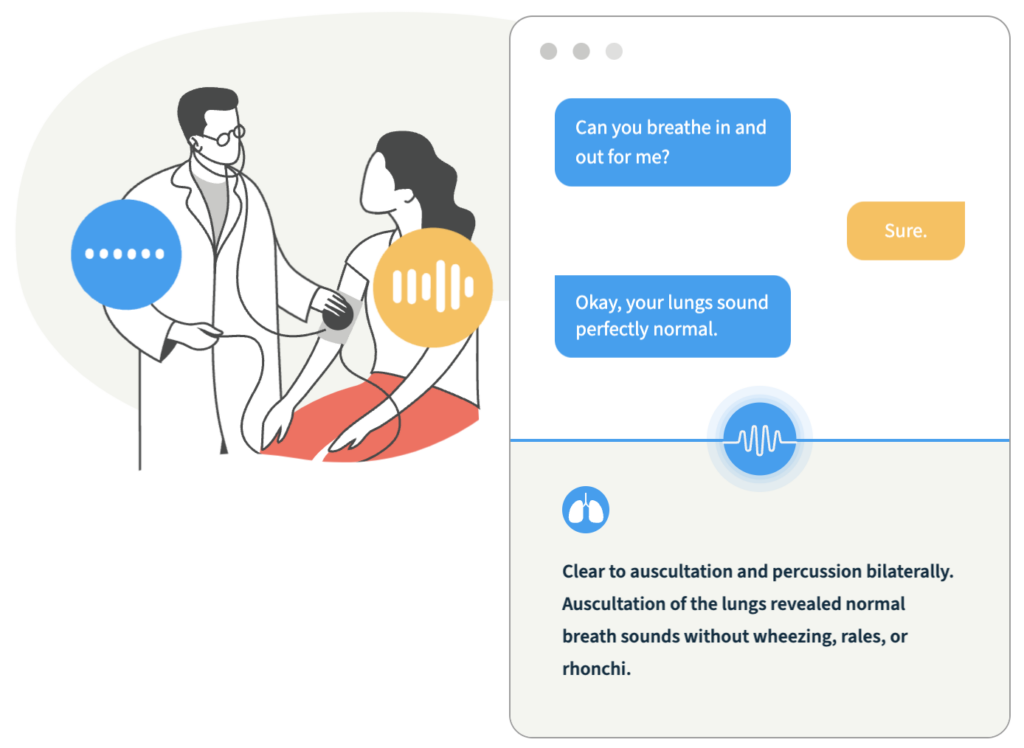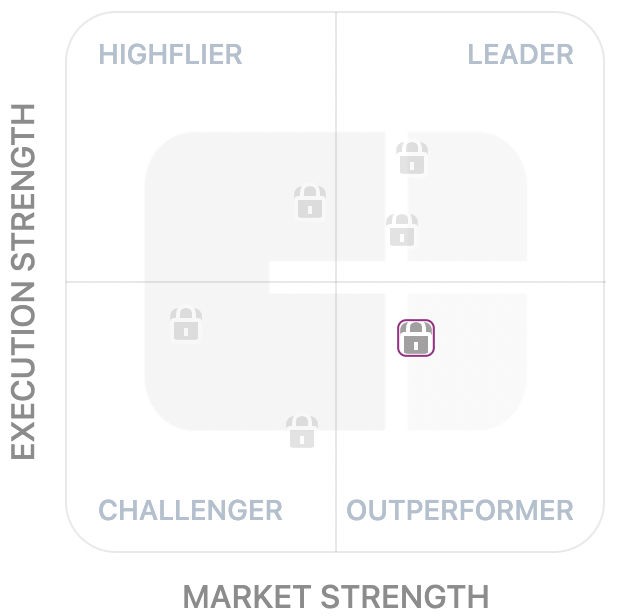Giving Back 3 Hours a Day to Doctors

With over 75% of physicians using documentation tools in the space, they are still spending nearly half their day writing notes — DeepScribe is changing this
The “number one pain point” for doctors
Doctors have absolutely no time to waste in their day, jumping from patient to patient on a tight schedule as they deliver complex diagnoses and procedures. This fatigue, in combination with human error, occasionally leads them to take inaccurate notes when they converse with patients about their needs, resulting in patient frustration or – worse – medical error.
DeepScribe, the world’s first ambient AI scribe, directly addresses this issue. With their proprietary AI solution, DeepScribe captures patient encounters in real time and automatically extracts medical information throughout the conversation. The AI also recognizes common phrases that physicians use to inform itself on what is taking place during the session; for example, if the physician says, “I’m just going to listen to your heart for a second,” DeepScribe understands that the physician is conducting a heart examination without the physician specifically mentioning this. It then generates documentation for the physician by summarizing the medical information collected in cohesive sentences and presents the documentation in a traditional SOAP note format (Subjective, Objective, Assessment, and Plan) that many healthcare professionals typically use to record a patient interaction. Finally, the documentation is integrated directly into appropriate fields in the physician’s Electronic Health Record (EHR) system.

What is the technology?
To achieve this, DeepScribe uses a combination of voice recognition and AI. Voice recognition is distinguishable from speech recognition in that it doesn’t simply interprets what is being spoken – it pays attention to who is speaking. This difference is key in patient interactions; discerning what is spoken by the physician as opposed to the patient allows DeepScribe to accurately categorize a patient’s symptoms as understood by the patient versus a medical professional. It also receives information on what procedures are being performed during the session by listening specifically to the physician’s cues to the patient (see heart examination example above). As the voice recognition component transcribes the audio input word-for-word, the AI scribe component simultaneously uses natural language processing (NLP) algorithms to parse out medical information from the conversation by removing small talk and filler words and subsequently summarizes the information.
Bringing back the “joy of care”
In doing this, DeepScribe completely relieves doctors from the burden of note taking. This allows doctors to focus on providing face-to-face care to their patients and build their client relationships while also reducing the risk of human error in medical documentation and giving back physicians 3 hours per day to combat fatigue, improve their work-life balance, or even see more patients to increase their revenues. The notes generated are also HIPAA-compliant and incorporate ICD-10 codes that are needed to meet insurance and medical billing standards, drastically reducing administrative labor dedicated to interpreting and categorizing the large amount of medical information collected by doctors on a day-to-day basis.
The value created for doctors through improved financial performance (i.e. opportunity to expand revenue in addition to significant cost reductions), better client relationships, greater job satisfaction (e.g. reduced fatigue, focus on delivering care rather than administrative tasks), and peace of mind with regard to potential human error in the lengthy process of collecting client information and entering the information accurately in the EHR system is reflected in the doctor testimonials below.
“DeepScribe has allowed us to do what led us to medicine in the first place which is empathetic listening and caring for the patient.” – Dr. Ravi Mallavarapu
“DeepScribe has not only allowed me to become more connected with my patients, but also increased my revenue by allowing me to see more patients.” – Dr. Pinkal Patel
“DeepScribe has feed up so much time for us. We actually have time to meet and do business development, get home, make dinner, and spend time with family.” – Dr. Navin Reddy
These benefits directly carry over to the patient as well. Because physicians are more rejuvenated physically and emotionally, the quality of interactions with their patients will improve (e.g. more attentive, more compassionate, more present etc.). As such, patients feel more connected and listened to by their physicians throughout what could be an emotionally taxing conversation about their pain and symptoms. Patients can also rest assured that their medical information is being captured completely and accurately.
Despite the fact that they deliver such huge value, DeepScribe ensures that their offering stays affordable to physicians, at a cost that is 1/6 that of a human scribe or transcription service. Given the increasing number of direct competitors in the space, I believe the low price point is a wise strategy to capture as many users as possible and collect valuable data that will feed and improve DeepScribe’s AI algorithm.

DeepScribe named as Outperformer in the NLP voice documentation market among 6 other companies, including Suki, Rad AI, and Notable.
Challenges and opportunities
DeepScribe’s largest challenge is around user adoption. It faces the traditional distrust and hesitations around AI from potential customers, exacerbated due to the fact that it is involved in a medical setting. When they do successfully acquire new customers, the physicians initially struggle with a learning curve, which is described to be “similar to having a new medical student or an intern” where the quality of notes only improve after sufficient usage (approximately 3 weeks). Additionally, though they support integration with a large number of widely-used, out-of-the box EHRs, they must perform custom integrations for EHR software that they have not currently developed.
The DeepScribe team should actively address these issues by building out a strong engineering team to (1) iterate on the quality of their product to reduce the ramp-up time for new customers and (2) support more out-of-the-box integrations. This will make the purchasing decision significantly easier for potential customers. The team should also consider new opportunities to expand their product capabilities, the most powerful (and most risky) option being the use of AI to suggest diagnoses based on the notes collected.
With respect to user attitudes toward AI, as younger, more tech-savvy doctors begin to form a greater proportion of practicing physicians and AI continues to permeate new parts of our day-to-day lives, I am optimistic that DeepScribe’s prospective customer base will increasingly perceive AI in a favorable light, resulting in higher rates of adoption.



This is an awesome product and post! I think about non-US countries that have really limited access to doctors and how this product could meaningfully increase access to care. Do you have any ideas if they are thinking about moving outside the US? I know it would be a huge regulatory burden but I can see it having such transformative effects that I hope they do! It is crazy to me that this could save 3 hours a day – really puts the ROI into perspective. Thanks for sharing!
Super interesting post,
It’s so hard to combat the distrust issue, especially in industries like medicine, even if this technology is not even trying to “replace” the doctor, but is looking to make their work easier. This long ramp-up time in my mind is the most challenging one, especially if they plan to expand to other geographies that can be even less tech-savvy.
This sounds like such an easy solution to a common problem, they could also scale it to different industries (lawyers? maybe)
Either way, great post! thank you
I really hope this technology works out. I was talking to my doctor recently and he was talking about how much of his time he spends on administrative tasks. This could be a real time saver and mean real improvements in patient care.